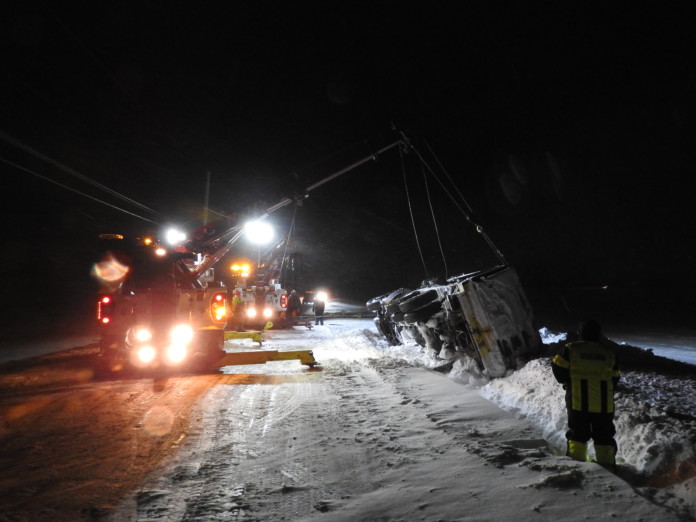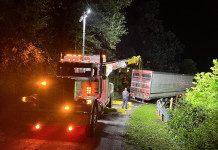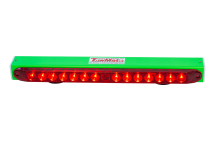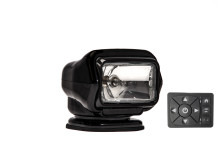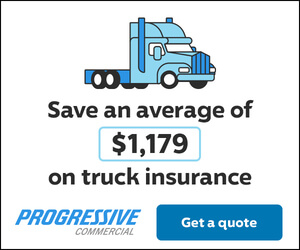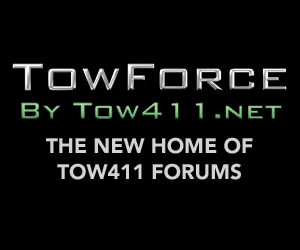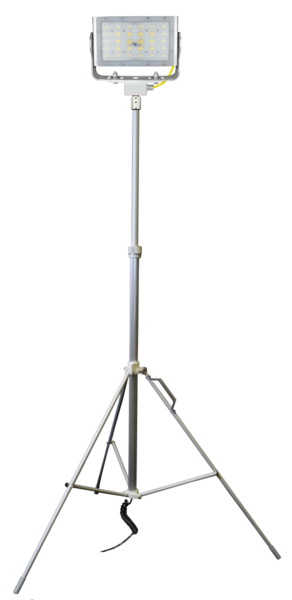 A towman’s most challenging work takes place at night. Obviously, visibility is reduced, but there are other threats as well. The glare of oncoming headlights may make it difficult for you to see. Wreckage may be scattered beyond your view. Drivers speeding past may be tired, careless, or even worse, impaired. The best way to reduce or eliminate these threats is to outfit your wrecker with high-quality lighting products designed specifically for your world.
A towman’s most challenging work takes place at night. Obviously, visibility is reduced, but there are other threats as well. The glare of oncoming headlights may make it difficult for you to see. Wreckage may be scattered beyond your view. Drivers speeding past may be tired, careless, or even worse, impaired. The best way to reduce or eliminate these threats is to outfit your wrecker with high-quality lighting products designed specifically for your world.
At the heart of every lighting product designed to help you do your job is the light. It’s obvious, right? But what is not so obvious is not all lights are created equal. For the most part, the days of the hot burning halogen lights that required constant replacement and an expensive generator on your truck or a separate light truck are long gone–and we are all thankful for that! So, what do you do? You go out and buy an LED light, bolt it on your vehicle, and away you go.
Everything is great! You have the latest lighting technology. You may have received a great deal on it from Amazon or you may have made an investment in a light that has an extended warranty or maybe even a lifetime guarantee. You are drawing so little power that you can run your lights off the alternator, and you believe your LEDs last forever. However, a little knowledge about how LEDs work and understanding the variation in quality and design between manufacturers can go a long way in reducing your aggravation, your long-term costs, and ultimately provide more light on the scene.
It all starts with the LED, and they are not created equal. LED manufacturers produce thousands of chips per run. These chips vary widely in their quality and capability to produce light. The manufacturer tests and sorts the LEDs and assigns them a bin rating. The light output can vary from a top bin rating of E (used in Night Scan lights) which generates an average of 1,000 luminous flux to a Z bin rating which only produces around 400 luminous flux. When you are shopping for an LED lamp, make sure to ask what bin rating the LEDs are.
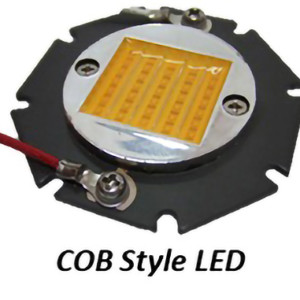
There are two common types of LED “chips” used in lamps: Chip On Board (COB) and Single Die LED that is combined with an optic collimator. COB chips are usually cheaper because they are not paired with precision optics – they make a good floodlight but do not expect them to provide usable light very far from the truck. The Single Die LED combined with a precision optic lens can give you the precise light on scene that you need. Optics can be turned to give you the best of both worlds by combining flood light optics (typically 60° angle or wider) and spotlight optics (typically 20° to 40° angle). The combination will provide great working light near the truck and will cast usable light well past 300 feet. Night Scan lights are illuminated by the single die LED with optic lens.
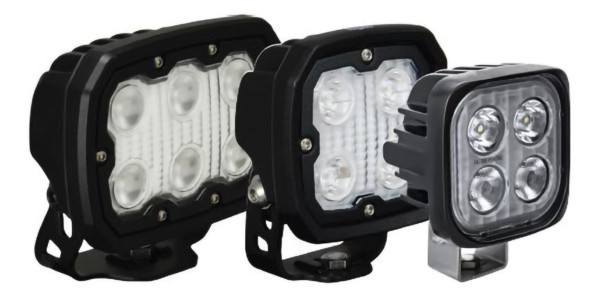
Heat is the number one enemy of LED chips. Heat that builds up and is not managed properly will cause a reduction of light output from the lamp over the time it is in use. You may start the job with the lamps generating the rated light output, but a couple of hours in you may notice that the scene is darker than when you started. This is caused by the lamp building up heat beyond the rating of the chip. Make sure to ask if LED lamp you are considering has “active heat management”. This is more than just the giant metal heat sink on the back of the fixture, this is circuitry that will manage the input power so that the LEDs do not get hotter than what they are rated for. This ensures consistent light output and will allow the lamp to stay in service for years. Lights with good thermal management systems will typically have warranties of 10 years or longer.
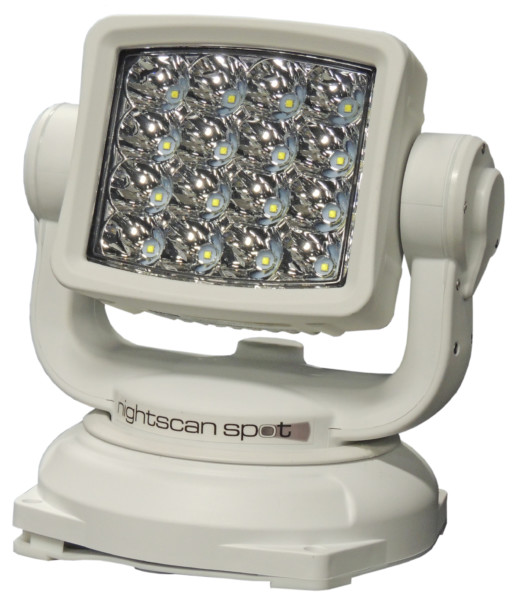
Now you understand how to choose a high-quality LED lamp. You know what questions to ask and have learned that “you get what you pay for.” Now it is time to select the products to upfit your truck, so you can put that light to use to be safer and generate additional revenue. It is important to maintain safe lighting around your wrecker. You will likely be in and out of the compartments and cab several times throughout the night. Make sure you have lights on the corners of your truck, in your compartments, and on the roof or headache rack that are directed to these areas.
Now it is time to think beyond the truck. There are several products on the market with different capabilities and created for different budgets that can help you to see and be seen by oncoming traffic. Two budget-friendly options that can be installed on nearly any vehicle are light poles and tripods. The light poles can be mounted nearly anywhere and can typically extend 2 to 4 feet. The LED light can generate up to 20,000 lumens. LEDs let you run them from truck power–no need to drag out the generator.
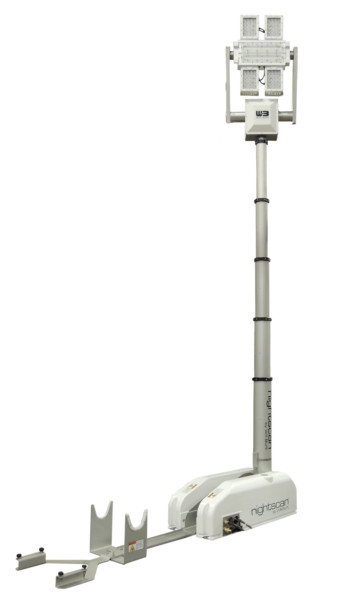
on Side Tool Box
A wireless remote-controlled light positioner is another tool that can be installed on any flat surface on any size vehicle. These products allow you to direct light right where you need it from the comfort of your cab or from where you are working. They can even be used while you are driving. A wireless remote-controlled light positioner is great for rollbacks and tow trucks. Night Scan Spot by Will-Burt is a budget-friendly option in this category.
Light towers that are installed onto a wrecker, rotator, or utility truck are proven to increase safety, speed up the recovery process, and generate more revenue. Night Scan HDT light towers by Will-Burt have been designed specifically for the tow industry. The tower is ruggedized, and the LED lights have the highest quality LEDs, active thermal management, and now carry a lifetime warranty. These towers elevate the lights to 15 feet or even higher to provide light from above – like daylight. These lights will not blind you or oncoming traffic. The lights can point any direction regardless of how your wrecker is parked – no more dark areas to work in! The tower is controlled by a remote control that can be installed in a compartment and has a coiled cord that is 25 feet long. For the ultimate in convenience, step up to a wireless remote with a range of over 300 feet.
Will-Burt has recently developed the most powerful light fixture in the industry – Sirion. The Sirion makes use of Triple Coverage Optics Technology to illuminate three areas of a scene: short-range for near the vehicle, mid-range for the typical work area, and long-range for searching or the work areas you just can’t get close enough to like a ravine, embankment, or bridge.
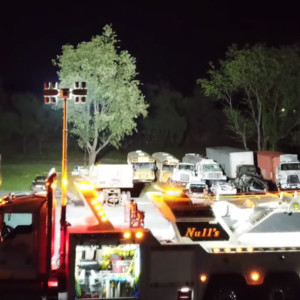 Latta Null of Null’s Towing was one of the first to install the Sirion light tower. He recently said, “We use Night Scan HDT light towers because they improve safety, visibility in our working area, and let oncoming traffic know we are here.” Light towers can be used a revenue generator. $250 per hour with a minimum of four hours is recommended by some billing experts. The tower can quickly pay for itself and then the rest goes to the bottom line! Latta also commented on how his business is able to generate more revenue with the tower, “It’s really improved our business flow because we are now being requested to bring our light towers out to assist in reconstruction and investigation by various police departments.” So, when darkness falls, make sure to take care of your crew and your bottom line by investing in high quality LED lamps and light towers that will be there when you need them.
Latta Null of Null’s Towing was one of the first to install the Sirion light tower. He recently said, “We use Night Scan HDT light towers because they improve safety, visibility in our working area, and let oncoming traffic know we are here.” Light towers can be used a revenue generator. $250 per hour with a minimum of four hours is recommended by some billing experts. The tower can quickly pay for itself and then the rest goes to the bottom line! Latta also commented on how his business is able to generate more revenue with the tower, “It’s really improved our business flow because we are now being requested to bring our light towers out to assist in reconstruction and investigation by various police departments.” So, when darkness falls, make sure to take care of your crew and your bottom line by investing in high quality LED lamps and light towers that will be there when you need them.
For more information, visit www.willburt.com

